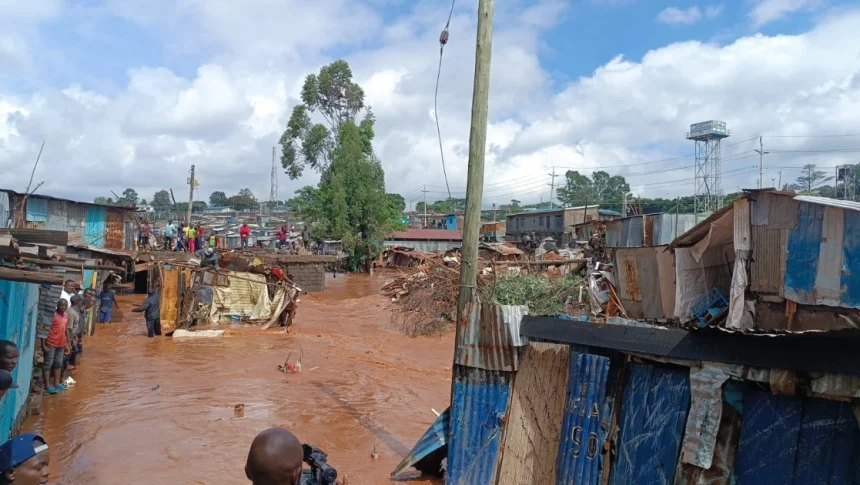The recent heavy rainfall and subsequent flooding across the country have caused substantial damage and loss of life.
Experts warn of a looming spike of waterborne disease as the floods damage properties, roads and infrastructure.
Dr Gome Lenga of St John Ambulance notes that floods have a consequence of the displacement of people and also result in poor sanitation, a situation that needs proper planning before it worsens.
He warns of an alarming disaster urging families residing in affected areas to exercise vigilance to mitigate potential exposure to contaminated water. He expressed concern for households using pit latrines, saying that floods could lead to overflows that could contaminate water sources, leading to water-borne diseases.
“The risks are dangerously increased during floods because some of the latrines in affected areas flood and faecal matter gets into contact with above-ground water and causes risk and exposure,” he said.
According to him, the problem could be worse than we thought especially in urban areas with an existing waste disposal l issue adding that waterborne diseases following the floods is a ticking time bomb.
The exposure to unclean water is a significant contributor to the spread of waterborne illnesses. Contaminated water infiltrates our diets, posing a potent risk for disease transmission.
“People should be vigilant now more than ever, seek medical attention if you experience abdominal pain, high fever, vomiting and diarrhoea,” he said.
“We are calling for urgent support and intervention by all relevant government and non-government agencies to address these looming crises. Unsafe water and poor sanitation can all increase the spread of waterborne diseases. Without proper medical support, these diseases can cause severe illness and possibly death,” he added
Waterborne diseases, such as cholera, typhoid, dysentery and hepatitis A, are caused by microscopic organisms like viruses and bacteria. These organisms can be introduced to the body through contaminated water, or by coming into contact with faeces containing the virus.
“For people in affected areas, the challenge can be getting clean uncontaminated water, especially in affected areas. Avoid drinking water that you are not sure of the source, boil the water before consuming it, avoid eating uncooked food and wash hands with soap and water,” he explained.
The Kenya Meteorological Department has warned Kenyans to brace for more heavy rain as the death toll from floods rises to 38 as over 110,000 Kenyans are displaced.
According to the Kenya Red Cross, several other families have been rendered homeless across the country with their properties destroyed by flood waters in the region.
Last week, the Kenyan government raised an alarm following the spilling of water from Masinga Dam. The dam, the largest water reservoir for power production in the country, has surpassed its capacity of 1056.5 cubic meters.



